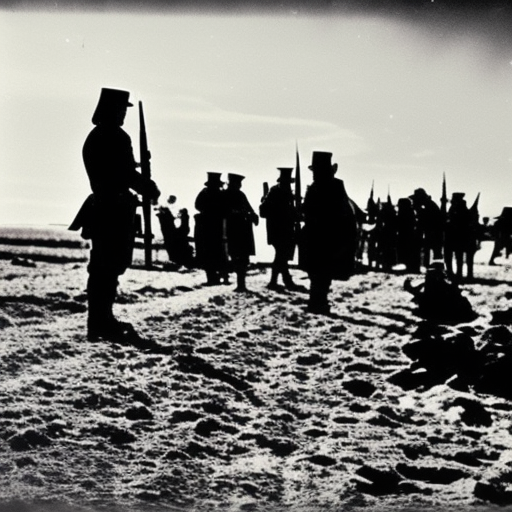Summary: Fourth Anglo-Dutch War
The Fourth Anglo-Dutch War was a conflict that took place between England and the Dutch Republic from 1780 to 1784. The war was primarily fought at sea and was characterized by intense naval battles and economic warfare. It was a continuation of the long-standing rivalry between the two maritime powers and had significant implications for their colonial empires and global trade.
Causes of the War
The main cause of the Fourth Anglo-Dutch War was the ongoing competition between England and the Dutch Republic for control over global trade routes. The Dutch had traditionally dominated world trade, but by the late 18th century, England had emerged as a formidable competitor. The English were eager to challenge Dutch dominance and expand their own commercial interests. Additionally, tensions were fueled by political disagreements and the Dutch Republic’s support for the American colonies during the American Revolutionary War.
Naval Battles and Blockades
The war was primarily fought at sea, with both sides engaging in numerous naval battles. The English navy, led by Admiral Sir Hyde Parker and later Admiral Sir George Rodney, was successful in capturing several Dutch colonies in the Caribbean, including St. Eustatius and Demerara. The Dutch navy, under the command of Admiral Johan Zoutman, put up a valiant defense but was ultimately unable to prevent English victories.
In addition to naval battles, both sides employed economic warfare tactics. The English implemented a blockade of Dutch ports, severely impacting Dutch trade and causing economic hardship. The Dutch, in response, launched privateering raids on English merchant ships, disrupting English trade routes and causing significant financial losses.
Treaty of Paris
The war came to an end with the signing of the Treaty of Paris in 1784. The treaty reaffirmed the Treaty of Westminster, which had been signed between England and the Dutch Republic in 1674. Under the terms of the treaty, both sides agreed to return captured territories and restore pre-war trade relations. The Dutch Republic also agreed to pay reparations to England for damages caused during the war.
Implications and Legacy
The Fourth Anglo-Dutch War had significant implications for both England and the Dutch Republic. England emerged as the dominant naval power and gained control over several Dutch colonies, strengthening its global empire. The Dutch Republic, on the other hand, suffered a severe blow to its economic and military power. The war marked the beginning of a decline for the Dutch Republic as a major world power.
The war also had broader implications for global trade. With the Dutch Republic weakened, England was able to expand its influence and control over key trade routes. This further solidified England’s position as a dominant player in the global economy.
In conclusion, the Fourth Anglo-Dutch War was a conflict fought between England and the Dutch Republic from 1780 to 1784. The war was primarily fought at sea and was characterized by intense naval battles and economic warfare. It was driven by competition for control over global trade routes and had significant implications for the colonial empires and global trade of both nations. The war ended with the signing of the Treaty of Paris, which reaffirmed pre-war agreements and marked the beginning of a decline for the Dutch Republic as a major world power.












